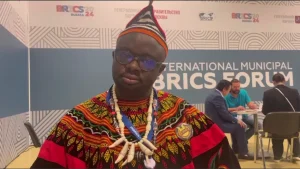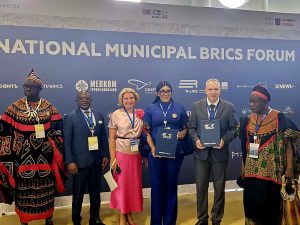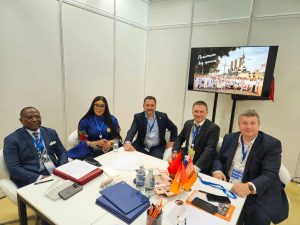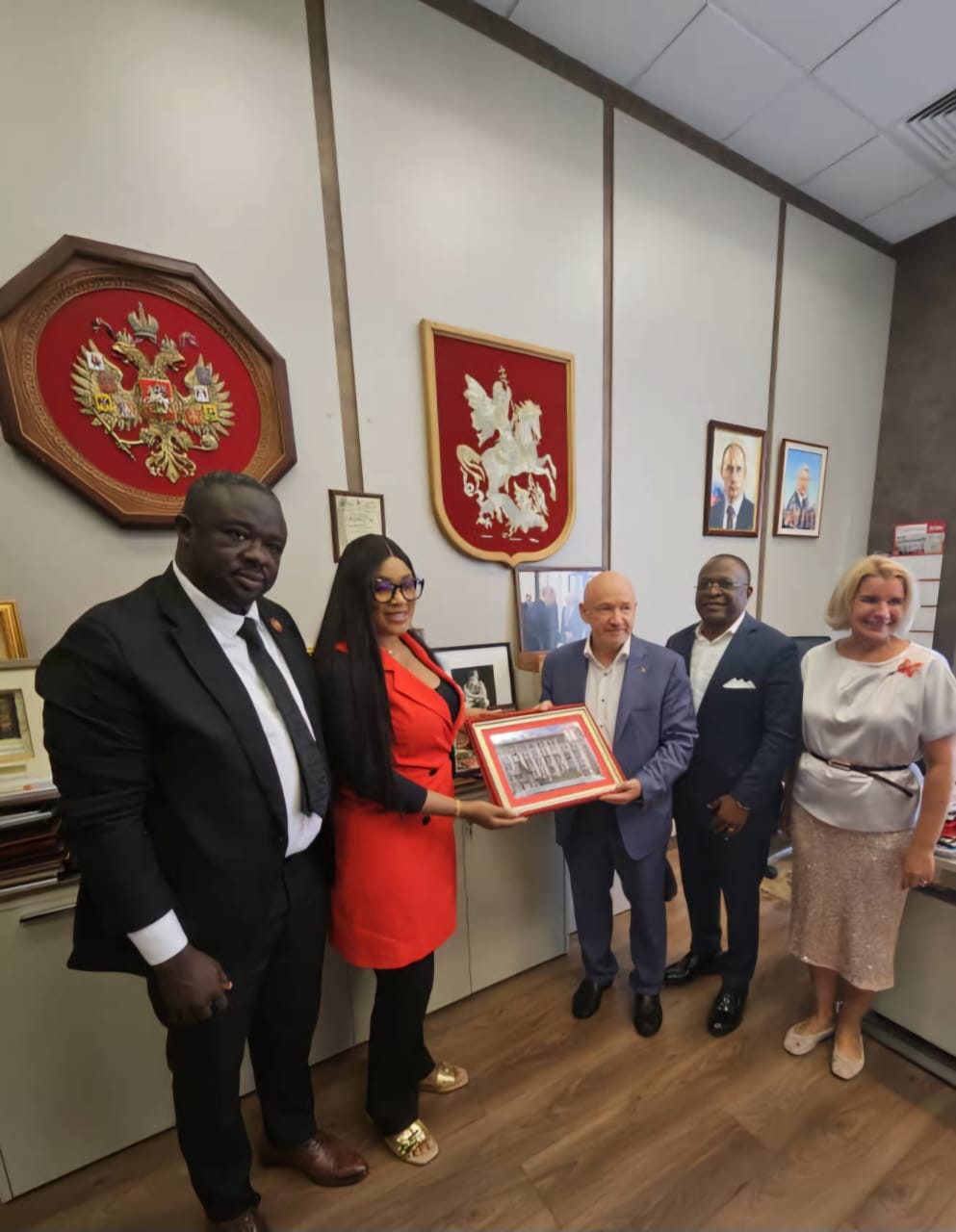Story, Louvier Kindo Tombe
The International Municipal Forum of the BRICS that took place in Moscow on August 27-28 was an important platform for exchanging experiences and ideas between representatives of regional and municipal governments from the BRICS countries, as well as for building effective business communications with entrepreneurs.
The delegation from Cameroon, led by Erise Mary Dinga, founder of Emmi Empire, was made up of renowned experts from diverse domains. One of them was Dr. Fuli Julius, a municipal councilor of the Tubah Council in Mezam Division, North West region of Cameroon.
“Connecting with other municipalities provides a platform for ongoing interaction, knowledge exchange, technology sharing, and financial collaboration, which, in turn, fosters mutual development,” Dr Fuli Julius said.

Dr. Fuli during the forum presented on waste management in the Tubah Council indicating that waste is collected and sorted into categories such as plastic, wood, and leather. “The plastic is recycled to create bricks by combining it with sand, which is utilized for road construction”, he said.
“The organic waste is converted into organic manure, which is highly beneficial for the Council since a large portion of Tubah residents are farmers. This organic manure has significantly boosted agricultural yields.”
Fuli went on to explain that the revenue generated from producing construction bricks has increased the municipality’s income. “The use of these affordable bricks has also improved accessibility within the municipality. Moreover, the establishment of a mini recycling plant in Tubah has addressed the issue of garbage dumping”.
The BRICS experience

Despite the strides recorded by the Tubah Council in waste management, there is however need for improvement. By learning waste management strategies from BRICS, Fuli Julius believes it will “immensely” benefit Cameroon’s Tubah municipality.
“I accumulated substantial knowledge on managing and modernizing recycling efforts during the forum. With additional technology and potential financial support from BRICS, our initiatives would expand,” he said.
“We intend to modernize because this artisan method being used is not efficient given the growing Tubah population,” Fuli Julius added.
The Tubah municipality is made up of close to 500,000 inhabitants. The council hosts a State University which brings in an additional population of approximately, 20,000 people.
“The BRICS Municipal Forum is going to help us bring in knowledge, machinery, and financial backup so that together we can see how we can modernize and make our community what we envisage it to be in the near future,” Fuli added.
Besides the presentation on waste management in Cameroon, the Delegation also travelled to the BRICS forum to share experience on rice production.
The board chair person of UNVDA, Dr. Nwana Sama Bernard, presented on the rice project with hope of attracting partners from the BRICS community.
The event was a major step forward in collective efforts to build a more sustainable and equitable future for cities across the world. The exchange of knowledge and experiences between BRICS nations and partner nations combined with the focus on innovative solutions will undoubtedly have a significant positive impact on urban development especially in Cameroon.

“The 6th BRICS International Municipal Forum was truly a catalyst for progress and a testament to the power of collaboration. I am confident that the ideas and initiatives discussed here will continue to shape the future of our cities in the years to come,: says Dr. Erise Mary Dinga.








